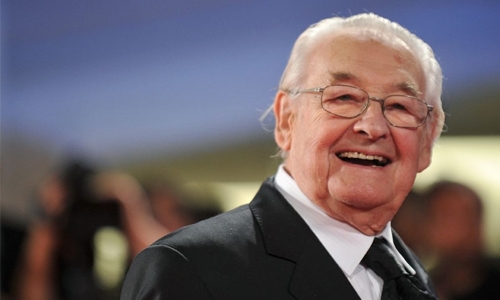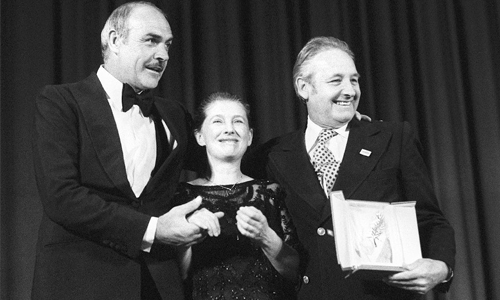Celebrated Polish filmmaker Andrzej Wajda dies aged 90
Warsaw : A legend in the world of cinema, Polish film director Andrzej Wajda died on Sunday aged 90, leaving behind an opus of acclaimed films inspired by his country's turbulent history.
Polish media broke the news, which was also confirmed to AFP by a family friend who did not wish to be named.
The source revealed Wajda had died in hospital of lung failure after being being in a medically-induced coma for days.
Wajda's first films were marked by the painful experience of World War II and the Polish resistance against the Nazis, who occupied the country for almost six years.
Krzysztof Piesiewicz, a Polish director and screenwriter, said Wadja, who was awarded an Oscar for lifetime achievement in 2000, brought a political aspect to his films.
"A great artist," said Piesiewicz, "But also one of the founders of Polish freedom, notably through the magnificent painting of our identity".
Film critic Tomasz Raczek said on Twitter: "Polish cinema will be in mourning for a long time."
Born on March 6, 1926 in Suwalki, northeast Poland, he tried to follow in his father's footsteps and become a solder, but was rejected from a military academy in 1939. He later attended Poland's renowned Lodz film school.
His first feature-length film, "Pokolenie" (A Generation, 1955), a coming-of-age story of young Poles in Nazi-occupied Warsaw, is considered the debut of a "Polish school of cinema" which delves into heroism and romanticism.
In 1957, Wajda won the Jury Special Prize at the Cannes Film Festival in France for "Kanal" (Canal), his masterpiece on the doomed 1944 Warsaw Uprising by Polish partisans against the Nazis.
"That was the beginning of everything," Wajda told AFP during a 2007 interview.
Related Posts


